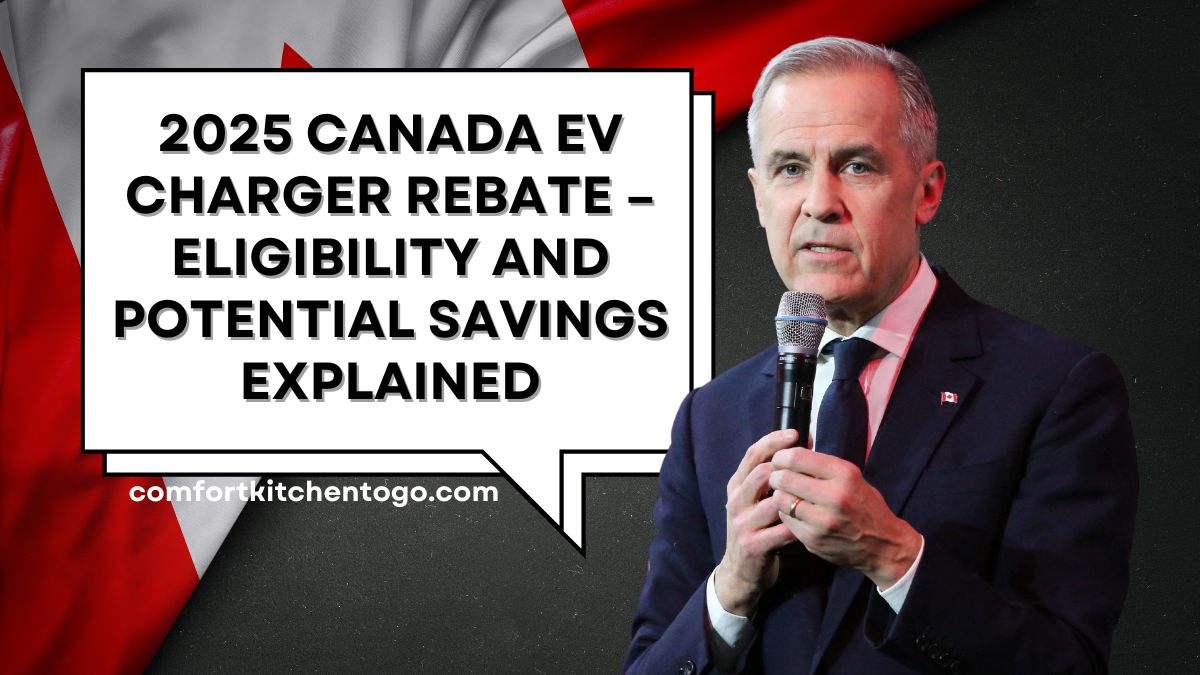The Canadian government continues its commitment to reducing emissions and fostering sustainable transportation through its Canada EV Charger Rebate 2025.
This initiative provides financial assistance to homeowners, businesses, and multi-unit residential buildings that wish to install electric vehicle (EV) chargers.
It aligns with Canada’s broader green policy agenda, making the transition to electric vehicles (EVs) more accessible and affordable.
Eligibility for the Canada EV Charger Rebate 2025
The EV Charger Rebate 2025 is available to a wide range of applicants:
Homeowners
Those who own residential properties and wish to install Level 2 chargers are eligible for this rebate.
Multi-Unit Residential Building Owners
Property managers or landlords can apply if they intend to install communal chargers for residential complexes.
Businesses and Non-Profits
Commercial properties and organizations offering chargers for public or fleet use qualify for the rebate.
Indigenous Communities
Special funding is set aside to assist First Nations, Inuit, and Métis communities in implementing EV infrastructure.
All applicants must ensure that a licensed electrician installs the chargers and that the equipment adheres to safety and performance standards as specified by Natural Resources Canada (NRCan).
Rebate Amounts for 2025
The Canada EV Charger Rebate 2025 offers different amounts based on the applicant type, with increases to reflect rising equipment and installation costs:
| Applicant Type | Rebate Amount | Details |
|---|---|---|
| Individual Homeowners | Up to $750 per charger | Covers installation and equipment costs. |
| Multi-Unit Residential Buildings | Up to $5,000 per charger (max $25,000) | For shared-use chargers only. |
| Businesses/Public Chargers | Up to 50% of project cost (max $100,000) | Includes DC fast chargers. |
| Indigenous Communities | 75% of project cost (max $125,000) | Covers planning and installation fees. |
Applicants are encouraged to combine federal rebates with provincial programs like BC’s CleanBC or Quebec’s Roulez Vert to maximize savings.
Step-by-Step Application Process
The Canada EV Charger Rebate application process is designed to be simple and efficient:
- Purchase eligible equipment from an approved supplier.
- Obtain a quote and hire a qualified electrician for the installation.
- Submit receipts and installation documentation via the NRCan portal.
- Receive a direct deposit reimbursement within 6–8 weeks.
For commercial or large-scale projects, pre-approval is advised to ensure smooth processing, especially when additional funding is involved.
Why the Canada EV Charger Rebate Matters in 2025
As Canada continues its pursuit of a low-carbon future, the EV Charger Rebate 2025 is a critical element in making electric vehicles an everyday option. With sales targets for EVs and fuel economy regulations, the rebate ensures that sustainable transportation is accessible and affordable.
The program helps homeowners adopt EVs without the burden of high upfront costs, promoting the nation’s net-zero emission goals by 2050.
The Canada EV Charger Rebate 2025 offers more than just financial support—it plays a vital role in creating a sustainable and eco-friendly future for Canadians.
By supporting homeowners, businesses, and Indigenous communities in adopting electric vehicles, the government is taking significant strides toward a greener, more sustainable transportation system.
FAQs
Who is eligible for the Canada EV Charger Rebate 2025?
The rebate is available to homeowners, multi-unit residential building owners, businesses, non-profits, and Indigenous communities.
What is the maximum rebate amount I can receive?
The maximum rebate is $750 for homeowners, $5,000 for multi-unit buildings, 50% of project costs (up to $100,000) for businesses, and 75% of project costs (up to $125,000) for Indigenous communities.
How long does it take to receive the rebate?
Once all documentation is submitted, applicants typically receive their reimbursement through direct deposit within 6–8 weeks.

